Meet our first speakers
-
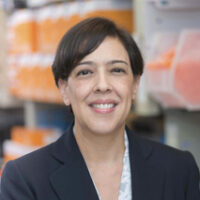
Maria Arcila
MD Memorial Sloan Kettering Cancer Center
Maria Arcila
MD Memorial Sloan Kettering Cancer CenterDr. Arcila is an anatomic and clinical pathologist, who subspecialized in molecular genetics and hematopathology. She currently serves as the Deputy Chief for the Molecular Diagnostics Service at Memorial Sloan Kettering Cancer Center. Her primary research and practice focus is in the design, validation and implementation of molecular testing methods to detect genetic alterations that are relevant to the diagnosis, management, classification, treatment and monitoring of patients with solid tumors and hematologic malignancies.
-
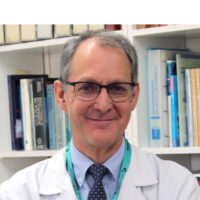
Rafael Canton
PhD Hospital Universitario Ramón y Cajal-IRYCIS, CIBER de Enfermedades Infecciosas (CIBERINFEC)
Rafael Canton
PhD Hospital Universitario Ramón y Cajal-IRYCIS, CIBER de Enfermedades Infecciosas (CIBERINFEC)Head of the Clinical Microbiology Department at the University Hospital Ramón y Cajal in Madrid (Spain) and Associate Professor of Clinical Microbiology at Complutense University in Madrid. His research activity is developed within the Spanish Network CIBER in Infectious Diseases (CIBERINFEC) and Institute Ramón y Cajal for Health (IRYCIS) in which he coordinates the Microbiology, Immunology and Infection Area. This activity is focused on antimicrobial resistance mechanisms, antimicrobial susceptibility testing with new technology, chronic respiratory tract infections, mainly in bronchiectasis and cystic fibrosis, and interplay of clonal epidemiology and resistance. He is currently the clinical data coordinator of the European Committee for Antimicrobial Susceptibility Testing (EUCAST) (former president 2012 – 2016). He has been President of the Spanish Society of Infectious Diseases and Clinical Microbiology (SEIMC) (2015-2017). Since 2018 he is in the Advisory Board of the Joint Programming Initiative on Antimicrobial Resistance (JPIAMR).
-

Alexis B. Carter
MD Children's Healthcare of Atlanta
Alexis B. Carter
MD Children's Healthcare of AtlantaAlexis Carter, MD, is an actively practising Molecular Genetic Pathologist and Physician Informaticist for the Laboratory at Children’s Healthcare of Atlanta and an Adjunct Associate Professor within the Department of Pathology and Laboratory Medicine at Emory University. Dr. Carter is teaching faculty for the American Medical Informatics Association (AMIA) Clinical Informatics Board Review Course for physicians. She is the chair of the Association for Molecular Pathology (AMP) Electronic Health Records and Genomics Working Group and the immediate past AMP secretary/treasurer. She is the current Secretary for the Clinical and Laboratory Standards Institute document development committee for two-dimensional barcoding for both clinical and anatomic pathology laboratory specimens. She was the senior author for the guideline on validation of next-generation sequencing bioinformatics pipelines from AMP, the College of American Pathologists (CAP), and AMIA. She is an Associate Editor of the Journal of Molecular Diagnostics, an Associate Editor for Administrative and Regulatory Affairs for Archives of Pathology and Laboratory Medicine, an editorial board member of the Journal of Pathology Informatics, and a reviewer for multiple scientific journals in molecular diagnostics, genetics and informatics. She is board-certified in clinical informatics, molecular genetic pathology, anatomic pathology and clinical pathology.
-

Martha Clokie
PhD Director of the Centre of Phage Research at the University of Leicester
Martha Clokie
PhD Director of the Centre of Phage Research at the University of LeicesterProf. Martha Clokie is a Professor of Microbiology at the University of Leicester and the director of the UK’s newly founded Centre for Phage Research. She is also the editor in chief for the journal PHAGE: therapy, applications and research. Her research investigates the identification and development of bacteriophages that kill human and animal pathogens in an effort to develop new antimicrobials. She encompasses all aspects of phage therapy development – from unravelling fundamental biology to product development, and commercialization. Much of her research employs genomic, structural, bioinformatic and AI approaches to identify key traits associated with phage efficacy in clearing infections and currently she is developing phages for major gut pathogens including clostridial and Salmonella species that cause problems both in humans and animals, for respiratory pathogens and for antibiotic-resistant bacteria that cause urinary tract infections. Her work is regularly and recently featured on the BBC, for example the Life Scientific the iconic Infinite Monkey Cage’, and the Today Programme.
-
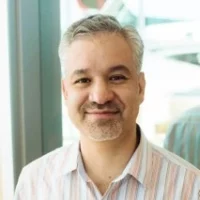
Francisco De la Vega
D.Sc. Stanford University School of Medicine
Francisco De la Vega
D.Sc. Stanford University School of MedicineFrancisco De La Vega is a distinguished human geneticist, computational biologist, and experienced technical executive, widely recognized for his expertise in clinical and population genomics, and bioinformatics. He is Adjunct Professor in the Department of Biomedical Data Science at Stanford University School of Medicine and serves as member of the Board of Directors of the International Society of Computational Biology. Francisco spent over a decade at Applied Biosystems developing several successful genetic analysis products and afterward contributed to several life sciences start-up companies focused on bringing genome sequencing and informatics technologies into the clinic. He was Chief Scientific Officer at Fabric Genomics, a firm focusing on AI-driven clinical genomic diagnostics of rare genetic diseases. More recently, as VP of Hereditary Disease at Tempus AI, he focused on the development of whole-genome clinical tests and conducted innovative research into racial disparities in multimodal real-world data, developing a race and ethnicity imputation framework using machine learning to compensate for data missingness of this type that enables the development of fair AI outcome predictors. He has participated in several breakthrough international projects, such as the 1000 Genomes Project, the Genome-in-a-Bottle Consortium, and the International Cancer Genome Consortium.
-
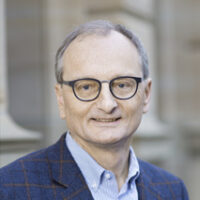
Falko Fend
MD Universitätsklinikum Tübingen
Falko Fend
MD Universitätsklinikum TübingenFalko Fend, MD, is Full Professor of Pathology and Chairman of the Institute of Pathology and Neuropathology and Reference Center for Hematopathology at the Eberhard-Karls University in Tübingen, Germany.
He did his postgraduate training in the Departments of Pathology and Internal Medicine at Innsbruck University and joined the Department of Pathology as staff pathologist in 1991. From 1997-1999, he worked as research fellow at the Laboratory of Pathology, National Cancer Institute, NIH, Bethesda, with Mark Raffeld and Elaine Jaffe. In 1999, he was appointed Associate Professor of Pathology at the Institute of Pathology of the Technical University Munich. In 2007, he moved to his current position at the University of Tübingen. His main research interest focuses on the pathology and molecular genetics of malignant lymphomas and innovative molecular pathology. He obtained competitive funding from multiple national and international grant agencies, has authored or co-authored over 450 publications and has contributed to major textbooks and reference works. He serves/-ed as member of the executive boards of the German Society of Pathology, the European Association of Haematopathology, the Advisory Board and Council of the European Society of Pathology and as Chairman of the European Bone Marrow Working Group. -
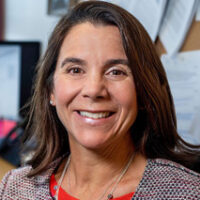
Tina Hernandez-Boussard
PhD MPH, MS, FACMI Stanford School of Medicine
Tina Hernandez-Boussard
PhD MPH, MS, FACMI Stanford School of MedicineDr. Hernandez-Boussard is an Associate Dean of Research and Professor at Stanford University in Medicine (Biomedical Informatics), Biomedical Data Sciences, Surgery and Epidemiology & Population Health (by courtesy). Her background and expertise are in the field of biomedical informatics, health services research, and epidemiology. In her current work, Dr. Hernandez-Boussard develops and evaluates AI technology to improve health and healthcare outcomes. She is a dedicated advocate of ethical AI practices.
-

A. John Iafrate
MD-PhD Massachusetts General Hospital
A. John Iafrate
MD-PhD Massachusetts General HospitalA. John Iafrate has been a leader in developing and implementing diagnostic technologies in the fields of genomics and transcriptomics. As a post-doctoral research fellow at Brigham and Women’s Hospital he discovered germline copy number variation utilizing DNA microarrays. As a principal investigator at MGH, his laboratory helped usher in the era of multiplexed genotyping, culminating with the development of Anchored Multiplex PCR for targeted DNA and RNA sequencing. He has been integrally involved in the development of personalized medicine in cancer, including for ALK and ROS1-positive lung cancers.
-
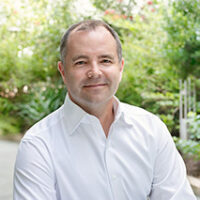
Niall J Lennon
PhD Sr. Director, Genomics Platform and Chief Scientific Officer, Broad Clinical Laboratories
Niall J Lennon
PhD Sr. Director, Genomics Platform and Chief Scientific Officer, Broad Clinical LaboratoriesNiall J Lennon, Ph.D. is the Senior Director of the Genomics Platform at the Broad Institute of MIT and Harvard, where he is also an Institute Scientist. He is also the Chief Scientific Officer and Chair of the Board of Managers of Broad’s clinical testing laboratory, Broad Clinical Labs, LLC. Dr. Lennon is also an Associate Director of the Gerstner Center for Cancer Diagnostics. He oversees the development, implementation, and validation of disruptive technologies to serve basic research, clinical research, and clinical diagnostics.
Dr. Lennon has been with the Broad since 2005 and has contributed to the development of applications for every major massively parallel sequencing platform across a range of fields. In 2013, Dr. Lennon built a CLIA/CAP licensed clinical laboratory at the Broad to facilitate return of results to patients and to support clinical trials. More recently, Dr. Lennon has led efforts to achieve FDA approval for both large-scale genomics projects (as co-Chair of the regulatory working group for NIH’s All of Us Research Project) and for Broad’s own clinical diagnostic for COVID-19 testing process that has delivered >37 million diagnostic test results to people in the New England region.
Dr Lennon received a Ph.D. in Pharmacology from University College Dublin and completed his Postdoctoral studies at Harvard Medical School and Massachusetts General Hospital. He holds an executive certificate in management from the MIT Sloan School of Management. Lennon is also an Adjunct Professor of Biomedical Engineering at Tufts University. -

Minetta Liu
MD Chief Medical Officer for Oncology at Natera
Minetta Liu
MD Chief Medical Officer for Oncology at NateraPrior to assuming the role of Chief Medical Officer for Oncology at Natera in June 2022, Dr. Liu served as Professor of Oncology and Chair of Research in the Department of Oncology at Mayo Clinic in Rochester, MN. She also chaired the Circulating Biomarker Working Group of the Alliance for Clinical Trials in Oncology, co-chaired the Correlative Science Working Group for the Translational Breast Cancer Research Consortium, and led several multi-institutional clinical and translational research trials. Dr. Liu brings a wealth of experience in the development and validation of blood-based biomarkers to predict treatment benefit and clinical outcomes in solid tumors.
-
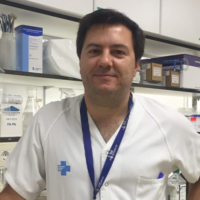
Javier Hernandez Losa
PhD Hospital Universitario Vall d´Hebron
Javier Hernandez Losa
PhD Hospital Universitario Vall d´HebronJavier Hernández Losa has a PhD in biology from the Universidad Autonoma de Madrid (2005). He leads the Molecular Biology Laboratory of the Pathology Service of the Hospital Universitari Vall d´Hebron in Barcelona since 2006. The laboratory specializes in the study of biomarkers, mainly in tissue samples and these studies have recently been extended to Liquid Biopsy samples. Over the last few years he has coordinated 3 PhD thesis and is the tutor of several master projects based on the study of cfDNA and exosomes, both in in vitro models and in clinical samples from patients with advanced tumors. Currently, he is a member of the Low Prevalence Tumors Program of CIBERONC and is also the PI of several research projects.
-
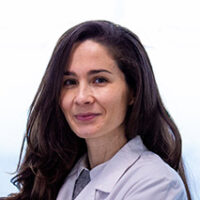
Isabella Monne
DVM, PhD Istituto Zooprofilattico Sperimentale delle Venezie (IZSVe)
Isabella Monne
DVM, PhD Istituto Zooprofilattico Sperimentale delle Venezie (IZSVe)Isabella Monne is a senior veterinary with a 14-year experience in the field of diagnosis and molecular epidemiology of the major viral diseases of avian species. She is currently Head of the Viral genomics and transcriptomics laboratory at the Istituto Zooprofilattico Sperimentale delle Venezie (IZSVe) which hosts the EU/ FAO/WOAH Reference Laboratory for Avian Influenza and Newcastle Disease. Her research focuses on the use of sequencing technologies and bioinformatics tools to investigate the evolution of RNA viruses, in particular the ones affecting avian species.
In 2016, she was appointed WOAH expert for the WOAH Reference Laboratory for Avian Influenza and Newcastle Disease at the IZSVe. She is a member of the OFFLU avian influenza network consisting of avian influenza experts who address priority influenza-related issues.
She is project leader and collaborator in several national and international research projects and has authored and co-authored 136 peer review articles published in international journals. -
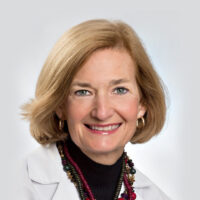
Cynthia Morton
PhD Director of Cytogenetics at Brigham and Women’s Hospital
Cynthia Morton
PhD Director of Cytogenetics at Brigham and Women’s HospitalCynthia Casson Morton received her B.S. from the College of William and Mary and her Ph.D. in Human Genetics from the Medical College of Virginia. She was a post-doctoral fellow in the laboratories of David M. Kurnit, M.D., Ph.D. at Boston Children’s Hospital and of Philip Leder, M.D. at Harvard Medical School. She holds the William Lambert Richardson Professor of Obstetrics, Gynecology and Reproductive Biology at Harvard Medical School and Professor of Pathology, the Kenneth J. Ryan, M.D. Distinguished Chair in Obstetrics and Gynecology, and is Director of Cytogenetics and Past Director of the Biomedical Research Institute at Brigham and Women’s Hospital. She is an Institute Member of the Broad Institute. Dr. Morton is Chair in Auditory Genetics at the University of Manchester, UK. She is certified by the ABMGG in Ph.D. Medical Genetics, Clinical Cytogenetics and Clinical Molecular Genetics. Her research interests are molecular cytogenetics, hereditary deafness, and the genetics of uterine leiomyomata. She has had a career long interest in gene mapping beginning with autoradiography and with chromosome rearrangements for diagnostics in rare disease patients. She founded the Developmental Genome Anatomy Project (DGAP) to annotate genes disrupted by balanced chromosome rearrangements and has more recently extended this exploration into lncRNAs in the noncoding genome.
-

Elli Papaemannuil
PhD Memorial Sloan Kettering Cancer Center
Elli Papaemannuil
PhD Memorial Sloan Kettering Cancer CenterDr. Elli Papaemmanuil, PhD is an Associate Attending at the Computational Oncology Service, Department of
Epidemiology and Biostatistics at Memorial Sloan Kettering Cancer Center and is also serving as Associate Director for the Center of Hematological Malignancies. Dr Papaemmanuil earned her bachelor and masters degrees in human molecular genetics from the University of Glasgow, UK and a PhD in population genetics at the Institute of Cancer
Research at the University of London. Her research involved the characterization of germline predisposition loci in
childhood ALL by means of population genome wide association studies. Dr Papaemmanuil pursued postdoctoral research at the Wellcome Trust Sanger Institute under the mentorship of Peter Campbell where she led research into the discovery of cancer gene drivers of hematological neoplasms. More recently, Dr Papaemmanuil has developed experimental and analytical methods to support molecular characterization of large patient cohorts and study the
genetic and clinical inter-relationships of leukemias. She currently leads large population genomic profiling studies in myeloid neoplasms (AML, MDS, MPN) and in Acute Lymphoblastic Leukemia with the aim to characterize how the molecular architecture of the disease and the corresponding clonal relationships determine clinical phenotype and response to therapy. She leads the computational oncology group for the center of heme malignancies at MSKCC and the pediatrics precision medicine initiative where she oversees all molecular profiling studies in leukemia as well as all pediatric cancers. -

Amanda Pichini
MSc in Genetic Counselling Director of Clinical Implementation at Genomics England
Amanda Pichini
MSc in Genetic Counselling Director of Clinical Implementation at Genomics EnglandAmanda is the Director of Clinical Implementation at Genomics England, providing strategic clinical leadership in the delivery of programmes and services across Genomics England, particularly the Newborn Genomes Programme. She received her Master of Science in Genetic Counselling from the University of Toronto, and has previously worked as a clinical genetic counsellor in Canada and England. Her work focusses on implementing genomic medicine research into clinical care, addressing ethical challenges and educating healthcare professionals to deliver effective patient and family-centred care.
-
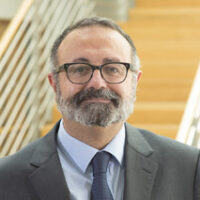
Manuel Salto-Tellez
MD-LMS, FRCPath, FRCPI The Institute of Cancer Research and the Royal Marsden Hospital
Manuel Salto-Tellez
MD-LMS, FRCPath, FRCPI The Institute of Cancer Research and the Royal Marsden HospitalProfessor Manuel Salto-Tellez (MD-LMS, FRCPath, FRCPI) is the Professor on Integrative Pathology at the Institute for Cancer Research in London (ICR), and the lead of the Royal Marsden Hospital / ICR Integrated Pathology Unit. He is also the Chair of Molecular Pathology at Queen’s University Belfast (QUB), a clinical consultant pathologist and the Lead of QUB’s Precision Medicine Centre of Excellence.
Manuel studied Medicine in Spain (Oviedo), Germany (Aachen) and The Netherlands (Leiden). He specialized in Histopathology in the UK (Edinburgh and London) and in Molecular Pathology in USA (Philadelphia). For more than 10 years he worked at the National University of Singapore and its National University Hospital, where he was associate professor, senior consultant, director of the Diagnostic Molecular Oncology Centre, Vice-dean for Research and senior scientist at the Cancer Research Institute.
Prof Salto-Tellez is author or co-author of more than 320 internationally peer-reviewed articles in translational science, molecular pathology and diagnostics, has published a similar number of abstracts in international conferences, and is editor or contributor to some of the key textbooks of pathology and oncology. Manuel holds more than £21M in competitive grant funding. He is scientific advisor to 2 companies in the digital pathology and artificial intelligence space. -

Jesse Swen
PharmD, PhD Leiden University Medical Center
Jesse Swen
PharmD, PhD Leiden University Medical CenterJesse Swen PharmD, PhD is a full professor of clinical pharmacy, in particular translational pharmacogenetics. He works as a clinical pharmacist-clinical pharmacologist at the Department of Clinical Pharmacy & Toxicology, Leiden University Medical Center where he is the chair of the laboratory of the hospital pharmacy.
The long-term central goal of his career is to improve the outcomes of drug treatment by gaining a better understanding of the genetic mechanisms that result in inter-individual variability in drug response. To this end, he is working on the following research topics:
• Dissecting the impact of rare, structural and regulatory variants on drug absorption, distribution, metabolism, and excretion (ADME)
• Elucidating the mismatch between the drug metabolizer genotype and the capacity of an individual to metabolize drugs (phenoconversion).
• Translating pharmacogenomics to patient care.This work is seamlessly integrated with his work as chair of the pharmacy laboratory. He has (co-) authored more than 150 (Web of Science indexed) articles in international peer-reviewed scientific journals and several chapters in books. He is one of the primary investigators of the “Ubiquitous Pharmacogenomics” project (www.upgx.eu) and leader of the PREPARE trial that assessed the clinical utility of pharmacogenetics panel testing across 7 European sites. In addition, he is an active member of the Dutch Pharmacogenetics Working Group (DPWG) and the US Clinical Pharmacogenetics Implementation Consortium (CPIC).
-

Bani Tamraz
PharmD, PhD University of California San Francisco (UCSF) School of Pharmacy
Bani Tamraz
PharmD, PhD University of California San Francisco (UCSF) School of PharmacyDr. Bani Tamraz is an Associate Professor of Clinical Pharmacy and the newly appointed inaugural Director of Pharmacogenomics at the University of California San Francisco (UCSF) School of Pharmacy. He completed his Pharm.D., and clinical practice residency at UCSF and UCSF Medical Center, respectively. Following residency, he also pursued a Ph.D. in Pharmaceutical Sciences and Pharmacogenomic at UCSF. His interest and work are in the field of pharmacogenomics research and clinical practice. He is here to discuss the May 9th launch of the clinical PGx program at UCSF Health, where he has played a leading role.
-

Panieh Terraf
PhD Memorial Sloan Kettering Cancer Center
Panieh Terraf
PhD Memorial Sloan Kettering Cancer CenterAs a medical geneticist, she specializes in cancer genome diagnostics and the accurate clinical interpretation of complex cytogenetic and molecular results. Her clinical responsibility primarily involves the interpretation of molecular test results to screen for and diagnose hereditary cancers. She works closely with oncologists and pathologists to help guide patient-personalized care by understanding inherited genomic alterations and their implications in the screening, diagnosis, and management of cancer. Her current research interest broadly includes the translation of cutting-edge biological concepts into novel diagnostic techniques to provide high-quality and state-of-the-art patient care.
-
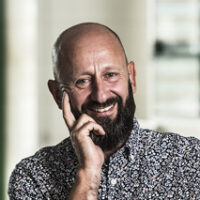
Jan Trka
MD, PhD Charles University Prague
Jan Trka
MD, PhD Charles University PragueJan Trka is a paediatric haematologist, since the 1990s he has been involved in genetic and genomic diagnostics of childhood leukaemias, development of new technologies for measurable residual disease detection and research on the origin and development of leukaemic clone. He co-founded the scientific group CLIP (Childhood Leukaemia Investigation Prague) and trained several top scientists. His work has been cited more than 7,900 times.
-

Mariano Vázquez
PhD ELEM Biotech
Mariano Vázquez
PhD ELEM BiotechMariano Vázquez is co-founder and CTO/CSO of the ELEM Biotech (The Virtual Humans Factory), a spinoff company of the Spanish Barcelona Supercomputing Center (BSC), founded with the goal of speeding-up the technology transfer of BSC modelling technology for he biomedical domain, in particular, the code Alya. He is also one of the two leaders of the Alya Development Team at the BSC, with more than 70 scientists and developers.
Graduated in Physical Sciences from the University of Buenos Aires, Argentina, in 1993, he completed his bachelor’s thesis on Chaos in Dynamical Systems. Doctor in Physical Sciences from the Polytechnic University of Catalonia (UPC), Spain, in 1999, he completed his doctoral thesis in Computational Fluid Mechanics (on numerical schemes for stabilization of compressible flow equations for finite elements). He has carried out post-doctoral stays at the Pole Scientifique Univ. Paris VI / Dassault Aviation (in multigrid for compressible and incompressible turbulent flow, funded by a Marie-Curie scholarship from the EC) and at INRIA Sophia Antipolis (shape optimization using the adjoint method), both in France, for 3 years. He was a consultant for the company Gridsystems (grid computing) in Palma de Mallorca (Spain) and a lecturer at the University of Girona (Spain). Since 2012 he has been a senior scientist at the CSIC, on leave since July 2018, when he co-founded ELEM. In 2004, his scientific interests experienced the irresistible grasp of computational biomedicine until this day (and counting). -
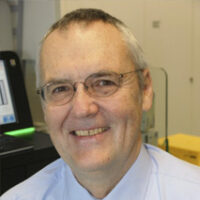
Andreas Von Deimling
MD University Clinic Heidelberg
Andreas Von Deimling
MD University Clinic HeidelbergDr. von Deimling is a neuropathologist with special interest in developing tools for brain tumor diagnostics. These tools encompass a wide spectrum such as defining clonal alterations for the diagnosis of specific tumors, generation of mutation-specific antibodies or developing methylation pattern-based tumor classifiers. Aim is to develop international standards suitable for inclusion in WHO guidelines for the classification of tumors. He has received his medical and scientific education in Zurich, Boston and Bonn.
-
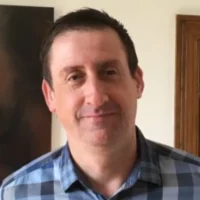
Lewis White
PhD, FRCPath FECMM Public Health Wales Microbiology
Lewis White
PhD, FRCPath FECMM Public Health Wales MicrobiologyLewis White is a consultant clinical scientist and leads the Public Health Wales Mycology Regional Reference Unit. He is an honorary professor at the Centre for Trials Research in Cardiff University, a fellow of the European Confederation of Medical Mycologists and the Royal College of Pathologists. Lewis is the Education Secretary for the ESCMID Fungal Infection study group, the Meeting Secretary for the British Society for Medical Mycology and the Vice President of the Welsh Microbiological Association and leads the laboratory working parties of the Fungal PCR initiative
His research interests include evaluating novel fungal diagnostics and assessing diagnostic-driven and risk stratification approaches to managing invasive fungal disease. He has published extensively in the field of medical mycology including international guidelines.
